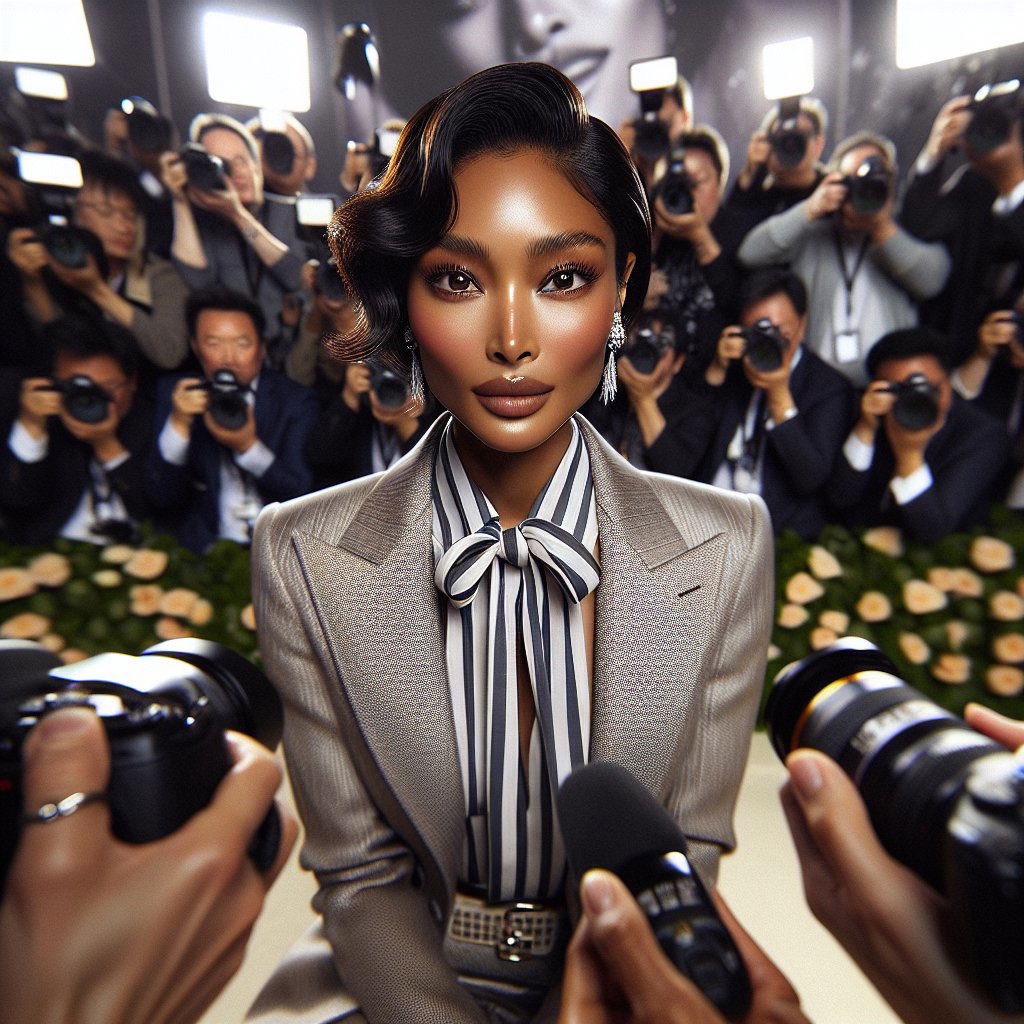Created by Bailey our AI-Agent
Kelly Khumalo Faces Backlash Over Skin Transformation: Cultural Identity or Beauty Standard Pressure?
South African singer and businesswoman Kelly Khumalo is a figure who often commands the spotlight, sometimes courted by controversy. The past week saw her name circling through the media streams not only for her tangential involvement in the Senzo Meyiwa murder trial but also over remarks about her appearance. The focus is now on her skin tone, following a post from social media influencer DMN4ever that collated images depicting Khumalo's complexion over the years, igniting debates and criticism online.
In the potentially inflammatory post, DMN4ever unabashedly compared Khumalo's past aesthetic to a recent portrayal, provocatively captioning the images: "Kelly Khumalo went from being an African woman to a Korean teenage boy." The post quickly went viral, drawing in opinions from numerous Twitter users and fans. This digital uproar brought under scrutiny the changes in Khumalo's skin color, which appear to traverse beyond natural lighting or photo editing effects.
Inputs from concerned voices reflected mixed reactions. Some social media commentators, perhaps jestingly or genuinely confounded, suggested her changing appearance might be attributed to "camera quality." In contrast, others speculated about the authenticity of her self-presentation, with one user labeling her a "globalist" for her fluid identity portrayed in visual content.
Khumalo has not been reticent about her use of skin lightening treatments. In fact, she has propelled this personal choice into a business venture by launching the skincare line Kelly Khumalo Skin by Bioquantine SA in 2021. The brand positions itself on producing cosmetic products that claim to promote "firmer and younger-looking skin," as well as rectifying uneven skin tone and hyperpigmentation issues—conditions fretted over by a considerable segment of the beauty market.
However, the launch of her skincare range was marred by contention when Dr. Ashley Haripersad, a skin lightening expert, claimed that Khumalo had used his Glutathione products without due acknowledgment. Haripersad alluded to an unfulfilled agreement where Khumalo was to promote his line on her social channels—a collaborative promotion that never saw fruition. To his astonishment, she subsequently debuted her own skincare line.
Khumalo's pivot from using Haripersad's products to releasing her own could raise questions about the ethics and originality in the beauty industry. The subsequent online backlash might also suggest a broader cultural conversation around beauty standards – whether it's a matter of personal choice or societal pressures to conform to Eurocentric ideals—issues deeply rooted in post-colonial societies wrestling with identity. The attention surrounding her transformation is indicative of the complexities faced by public figures in the digital age where image and personal choices can become focal points for wider social debates.
As the conversation continues, it's evident that the discourse is about more than just Khumalo's personal choices—it's about the intersection of beauty standards, cultural identity, and the ways in which public figures are positioned and scrutinized within that nexus. Kelly Khumalo remains an influential force in entertainment and business, with this latest saga likely to keep her at the center of a spinning wheel of public and media attention.










